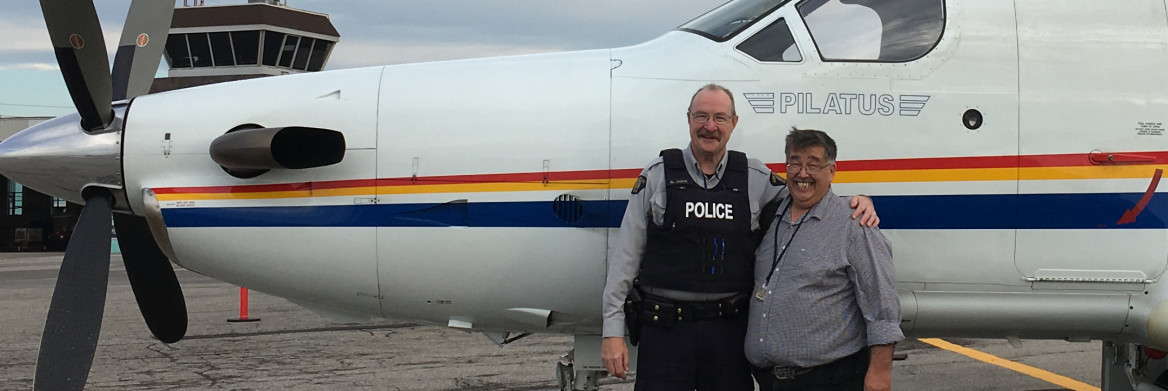Related link
Reservist Al Jagoe knew he couldn't completely step away from police work when he retired after more than 35 years with the RCMP.
"I can't get it out of my blood," he says.
Jagoe decided to apply to the RCMP Reserve Program giving him the chance to continue police work.
Launched in 2004, the program hires former police officers to provide short-term operational assistance during special events or when regular RCMP officers are on leave.
S/Sgt. Downey Brockelbank, non-commissioned officer in charge of the national reserve program, says it allows the RCMP to meet immediate operational needs without major disruptions at other detachments.
"We had some reservists help during the G7. They're also available to draw on if there's a natural disaster or emergency in addition to vacancies in detachments," says Brockelbank.
Flexibility
Retired or resigned RCMP members, as well as former members of other Canadian police forces, can apply for the program giving them the chance to transition from full-time work.
Reservists are appointed for three years and can work as much as they like during that time when duties are available.
"I've worked nine months a year, but people choose to work less too," says Jagoe, who's worked at almost every RCMP detachment in Nunavut since joining the Reserve Program in 2015.
"A lot of reservists like the fact that they can choose to work only a few months of the year," says Brockelbank. "Some are snowbirds and spend time down south."
On the job, a reservist has the same responsibilities, powers and duties as regular police officers. The wage is based on that of a senior constable and all reservists must meet the same medical and fitness standards as current officers.
"They do the same work as a badge-wearing, gun-carrying, regular member," says Brockelbank.
Currently, there are about 400 members in the program, but the RCMP hopes to grow the list to 1,200. Reservists must have at least two years' experience with a Canadian police force and be a graduate of a Canadian police training institution.
Reservist Anne O'Shaughnessy says joining the RCMP Reserve gave her the chance to work in community policing, something she always enjoyed during her career.
"In some of the smaller communities, we play sports with the local school and help organize the breakfast program," she says.
"If you're looking to go back to what you really thought policing was and what it should be, this is the place to be," says Jagoe. "It can be challenging, but it's rewarding."
Brockelbank says reservists can share their invaluable experience acting as a mentor where they're posted.
"We get to share experiences with the people we meet and learn from one another," says O'Shaughnessy.
Reservist Jerry McKenna, who started with the program in 2015, says the operational experience that reservists bring to detachments helps them connect with the community.
"You can help out at the school, with the council and even at the clinic if they need it," says McKenna.
Travel
Reservists often stay in their home province, but there is the opportunity to travel to far-away detachments.
During McKenna's more than 35 years with the RCMP, he had 19 different postings and moved 11 times. But when he retired, he still had more to see. McKenna applied for the Reserve Program in part to work in Canada's North.
"It's a privilege to see part of the country that most people don't get the chance to," says McKenna, who was once posted in Grise Fiord, the RCMP's northern-most detachment.
O'Shaughnessy, who lives on Prince Edward Island, says the chance to travel drew her to the Reserve Program.
"There's so many different climates to experience," she says. "I was able to see places without having to stay for three years."
Jagoe says the Reserve Program is one of the best things a retired member can choose to do.
"This is a phenomenal experience," says Jagoe. "It's grassroots policing at its finest."
